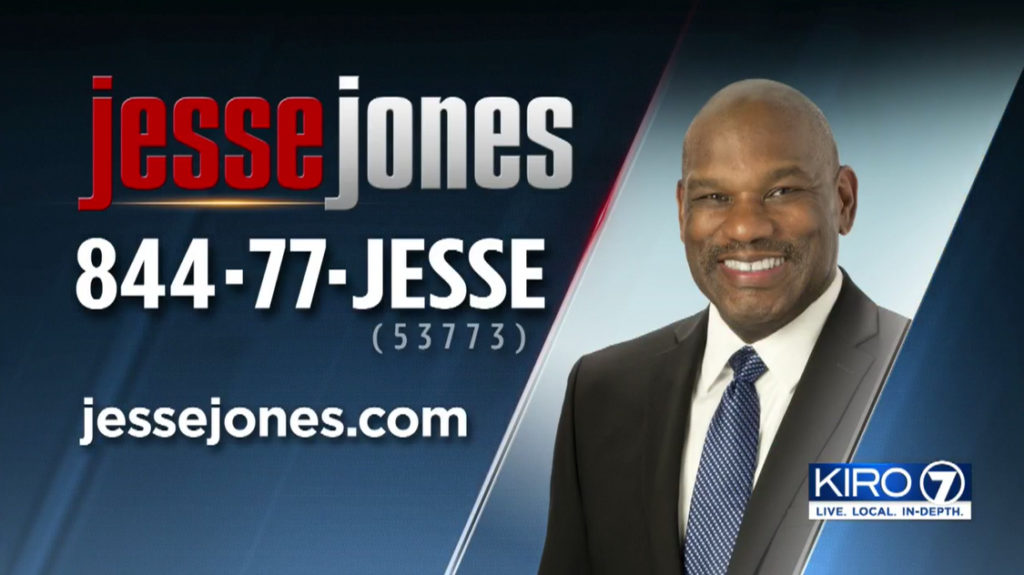Auburn, WA — Outside of a home in Federal Way, the Pacific Islander Community Association (PICA) operates a makeshift food bank. It serves thousands - no questions asked.
“We try to strip all of that away and focus on the human person, what does this human person need,” says Joseph Seia, with PICA.
Seia tells us some people drive here from other cities because a few food banks are asking families for identification, the names of their children, and if they were born in America.
“If you are putting up barriers to access to basic goods of course people are going to turn away,” says Seia.
This posses issues for immigrant families, and undocumented residents in particular. The worry is that the information held by these food banks could be obtained and used by the government to deport their family members.
“There’s a huge history of mistrust there,” says Seia.
One charity asking for that kind of information in exchange for food is the Auburn Food Bank. Debbie Christian is the Executive Director.
“One of the questions in the survey that came out of a grant years ago was ‘how many were immigrants?’ So that the question that they get is ‘were you born in America?’” says Christian.
Lika Smith, with the Pacific Islander Health Board of Washington, share’s PICA’s concerns.
“We were having community members call us, talking about how it was hard to access food when they had relatives move in with them,” says Smith.
She decided to see for herself.
“It was a 20 minute genealogy report,” says Smith, after visiting the Auburn Food Bank.
She says clients were asked to verify their addresses.
“Why do you have to bring mail for everybody in the house?” says Smith. “Everyone in the house, every time you show up at the food bank?”
And then, while some people provided information for groceries, she wondered about the pallets of food she saw sitting out by the garbage containers at the food bank.
Until:
“We saw some people pull up and load up the old food and take it away,” says Smith.
We checked out that claim. And we also saw people drive up and take food left by the trash.
“Just so they don’t have to bring paperwork every week. I think that’s what some people would do,” says Smith.
Ms. Christian, who runs the Auburn Food Bank, says the food near the trash is perishable and won’t make it to the next day.
“It’s good right this minute and it can go home with you today. That is food I’m not paying attention to. You can come off the street-corner, pick it up and drive away. I don’t care,” says Christian.
Ms. Christian says this is one of a number of misunderstandings. She says the information on the community is needed to make sure she is serving Auburn residents first. Ms. Christian adds that she would never give client information away. And she has empathy for the undocumented.
“I believe if I was in their shoes and I listened to the news, I would be scared spitless,” says Christian.
She says all people who decline to give their information will be allowed to go through the line. But anyone doesn’t prove they’re an Auburn resident will be referred to another food bank in the future.
“We don’t ask what we don’t need to know,” says Christian. “If a funder is asking for that information, then we are doing that.”
So we talked to the funders. The United Way of King County is one of them.
“No one who receives United Way funds should be required to fill something out,” says Lauren McGowan, who heads the organization’s efforts to eliminate poverty and homelessness. “We never ask about citizenship status, so we would never expect, want, or ask for any information about whether somebody was a citizen or not.”
Food Lifeline also provides funding to the Auburn Food Bank. I asked if they require organizations to ask for ID, mail proving residency, or country of birth.
“We don’t,” says Food Lifeline’s Josh Martinez.
Martinez says it’s not just undocumented immigrants who are worried about what could be done with their information. Under the recently-enacted “public charge” immigration rule, it’s possible that people applying for citizenship or permanent residency could be denied based on their likelihood to need public services in the future.
“And we want to make sure - regardless of your legal status in the country - if you’re here and you need to eat, we want to make sure you have that food,” says Martinez.
Since we’ve started asking questions, a Washington State Department of Agriculture advisory committee will now “develop training and resources for food banks to ensure the managers and volunteers are aware of the expectations around client identification, and ensure the food assistance needs of the clients take precedence.”
As for Auburn Food Bank, the question asking if you were born in America, and the mail requirements, are gone.
“So, for now, it is less stress on families who come without mail,” says Christian.
Now anyone, without fear, can get the food they need during a time people need it the most.
“They’re happy, we’re happy. It’s gone,” says Christian.

Email Jesse right now at consumer@kiro7.com
Cox Media Group

:quality(70)/cloudfront-us-east-1.images.arcpublishing.com/cmg/PGYREYHBAJDURJZ4E3ILRF66XU.png)
:quality(70)/cloudfront-us-east-1.images.arcpublishing.com/cmg/KBJE2AD4XBDBXDLDFDK7ACOVQY.jpeg)
:quality(70)/cloudfront-us-east-1.images.arcpublishing.com/cmg/YVQ4NBKJFRFTJLIM2BT7G564AA.png)
:quality(70)/cloudfront-us-east-1.images.arcpublishing.com/cmg/XVLXGVZEJZFSVK7IJ476H2YTE4.jpeg)
:quality(70)/cloudfront-us-east-1.images.arcpublishing.com/cmg/KKUHHMTWDVERBJBZQ4AYT6L7UA.jpeg)